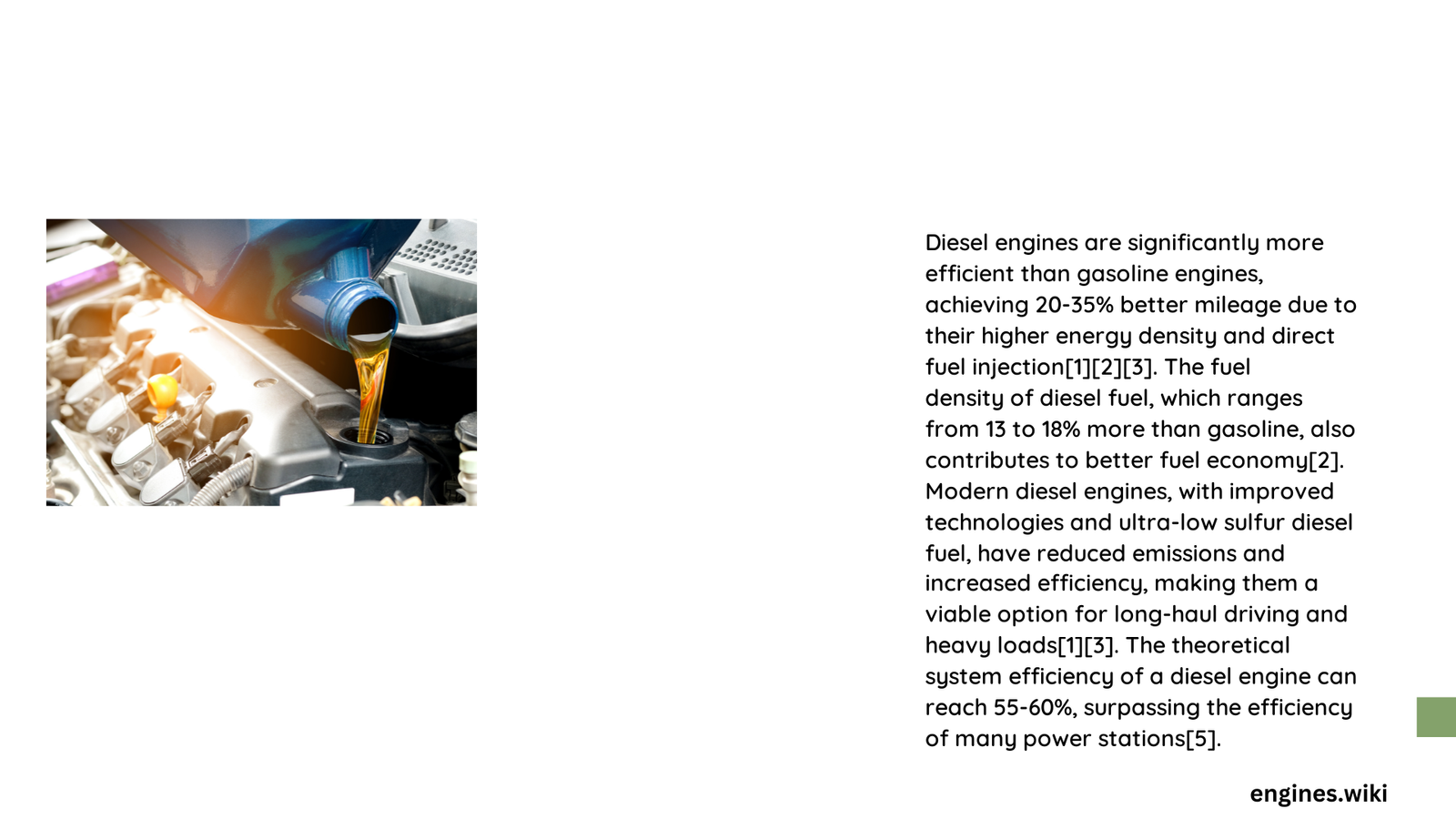Diesel engines represent a pinnacle of mechanical engineering, offering superior thermal efficiency compared to traditional gasoline engines. With thermal conversion rates ranging from 30% to 51.7%, these powerhouses transform fuel energy into mechanical work more effectively than their gasoline counterparts, making them a critical technology in transportation, industrial, and marine applications.
What Makes Diesel Engines Uniquely Efficient?
Diesel engines distinguish themselves through several key performance characteristics that contribute to their exceptional efficiency:
How Do Compression Ratios Impact Efficiency?
Diesel engines leverage higher compression ratios, typically between 14:1 and 25:1, which significantly enhances their thermal efficiency. This higher compression allows for:
- More complete fuel combustion
- Increased energy conversion rates
- Reduced heat losses during power generation
What Thermal Efficiency Metrics Define Diesel Performance?
| Engine Type | Thermal Efficiency Range | Key Characteristics |
|---|---|---|
| Modern Diesel | 30% – 35% | Higher compression ratios |
| Advanced Diesel | Up to 51.7% | Specialized maritime/industrial applications |
| Gasoline Engines | 25% – 30% | Lower compression capabilities |
Can Diesel Engines Deliver Superior Fuel Economy?
Diesel engines demonstrate remarkable fuel economy across various applications:
- Light-Duty Vehicles
- Achieve 40-50 MPG on highways
- More efficient than comparable gasoline models
-
Lower fuel consumption rates
-
Heavy-Duty Applications
- Significant torque production
- Reduced fuel expenditure
- Optimal for long-distance transportation
What Technological Innovations Drive Diesel Efficiency?
Modern diesel engine developments focus on:
- Advanced combustion chamber designs
- Precision fuel injection systems
- Turbocharging technologies
- Enhanced materials for reduced friction
- Sophisticated engine management software
How Do Emissions Impact Diesel Engine Efficiency?
Contrary to historical perceptions, contemporary diesel engines have made substantial progress in emissions reduction:
- Implementing selective catalytic reduction (SCR)
- Developing advanced particulate filters
- Integrating electronic control systems for precise fuel management
What Performance Metrics Define Diesel Engine Capabilities?
Performance characteristics include:
- Torque Range: 200-1,500 lb-ft
- Horsepower: 150-600 HP
- Acceleration Capabilities: Strong low-end torque
- Load Handling: Superior weight-bearing capacity
Challenges in Maximizing Diesel Efficiency

Despite impressive performance, engineers continue addressing:
- Reducing carbon emissions
- Minimizing heat losses
- Improving combustion processes
- Developing alternative fuel compatibility
Future Outlook for Diesel Technology
Emerging trends suggest continued improvements:
– Hybrid diesel-electric systems
– Enhanced computational modeling
– Integration with renewable energy technologies
– Increased focus on sustainable design principles
Conclusion
Diesel engines represent a sophisticated technology balancing performance, efficiency, and environmental considerations. Their ability to convert fuel energy into mechanical work more effectively than traditional engines positions them as a critical component in modern transportation and industrial sectors.
